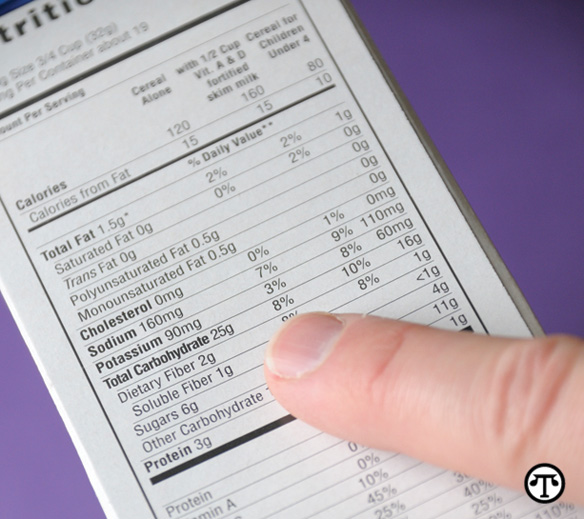(NAPS)—Making sure you and your family are getting the nutrients you need doesn’t have to be confusing. What may be the best way to figure out if a food is good for you can actually be pretty easy—check out the Nutrition Facts Panel. Found on the side or back of a food package, it gives the details about the amount of calories, fat, carbohydrates, protein, vitamins and minerals found in the food.
How to Read A Food Label
(NAPS)—Making sure you and your family are getting the nutrients you need doesn’t have to be confusing. What may be the best way to figure out if a food is good for you can actually be pretty easy—check out the Nutrition Facts Panel. Found on the side or back of a food package, it gives the details about the amount of calories, fat, carbohydrates, protein, vitamins and minerals found in the food.
How to Read A Food Label
When looking at the label, start with the number of servings per container. If it says there are two servings in the container but you plan on eating the whole thing, you need to multiply all the values listed on the label by two to find out what you’re really going to get.
Next, check out the calories. Is it the amount you want to eat? Your body needs calories for energy, but eating more than you need can lead to weight gain.
Look for lots of fiber, vitamin A, vitamin C and calcium. These nutrients will help you stay in good health and help reduce the risk of certain health problems, yet most Americans don’t get enough of them.
In fact, the gap between how much fiber Americans should eat and how much they do eat is so big that experts now recommend people eat both fiber-rich and fiber-fortified foods. Foods that provide a good source of fiber should contain 10 percent or more of the Daily Value for fiber.
To find foods that have fiber, look for such ingredients as:
• Arabinoxylan
• Beta-glucan
• Carboxymethylcellulose
• Cellulose
• Chicory Root Fiber
• Fructo-oligosaccharides
• Galacto-oligosaccharides
• Hydroxypropyl-Methylcellulose
• Inulin
• Methylcellulose
• Resistant maltodextrin
• Oligofructose
• Pectin
• Polydextrose
• Polyfructans
• Resistant starch.
It is important to eat a wide range of dietary fibers from different sources to get all the benefits that fiber can provide. In addition, you should try to limit saturated fat, trans fat and sodium.
Learn More
You can find more information about nutrition labels at www.fda.gov and further facts about fiber at www.fiberfacts.org.


















